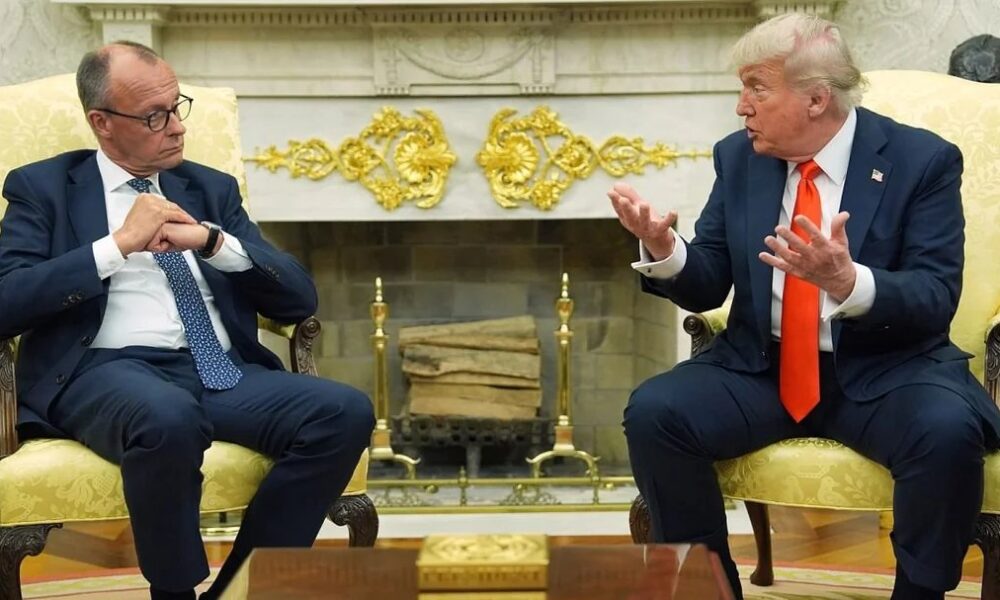American judge mentions advertising parts Google illegal monopolists
/s3/static.nrc.nl/images/gn4/data131040608-c4e239.jpg)
Will the big Google really split up? That could just be, now that an American court in Virginia has made an important ruling on Thursday in a case against the tech company.
According to the judge, Google has consciously monopolized two of the three most important parts of the digital advertising market. It is about both the technology that websites use to fill their advertising rooms, and the software that makes purchases between advertising providers and sellers possible.
The lawsuit was filed by the US Department of Justice and a number of states in 2023. According to Judge Leonie Brinkema, Google took the possibility of competing « by his monopoly position » rivals. » Google did that by purchasing companies that offered competitive technology and thus keeping prices artificially high. That method has « significantly damaged, » competitors and consumers, « said Brinkema.
The legal fight shows how governments try to tackle the power of tech companies
What the consequences of the ruling must be apparent if the judge will announce measures in a subsequent session. The potential impact for Google is huge. The possibilities include division, disposal of business units (mandatory sales) or fines. The tech company earns roughly a tenth of its annual turnover – $ 350 billion – to Google Network: the department that ensures that advertisements appear on websites and apps.
Google appeals. According to Google, publishers of websites have plenty of other options to show advertisements and they choose Google because their technology is ‘simple, affordable and effective’. For Google it is a new setback in a series of legal defeats – and certainly not just in the United States. The Japanese competition authority ruled on Wednesday that Google should immediately stop installing Google software on Android phones in advance. It was the first time that a statement was made in Japan in such a case against a global tech giant.
And last year An American judge ruled that Google unfairly protects its monopoly on the search market. For example, Google sets its own search engine as a standard option at Google-Browser Chrome, which makes it difficult for competitors to compete with Google. A federal court previously ruled that Google acted contrary to the law by paying billions for a preferred position in the Safari browser on the iPhone.
Europe is also not standing still. Last month, the European Commission ruled that the search giant gives its own services a preferred treatment by showing them more prominently than competing services. That research is still ongoing and can lead to fines in the future. One of the options that is now on the table is that Google repels its web browser Chrome or App store Android.
The legal fight against Google shows how governments worldwide try to tackle the enormous power of globally operating tech companies. The US government also has processes running against Meta, Amazon, and Apple. The European Commission is expected to come soon With fines against Apple and Meta.
The lawsuits are against different business units and on different grounds. But whether it’s all about search engines, advertising auctions, or access to app stores: the underlying message is always the same. The ‘Big Tech companies’ are so great and dominant that competitors have no chance. And according to the accusations, they have not fairly obtained and retained that market power.
Set
Most of the American cases against the large tech companies started under the previous Trump government. His successor Joe Biden further expanded the number of procedures and came up with legislation to regulate artificial intelligence, a decree that Trump wiped directly off the table. They are legally challenging matters that will be fought over several years. They largely exceed the political mood swings.
Nowadays the bosses from Silicon Valley walk the door flat in Mar-A-Lago and they seem the best friends. The question is whether the campaignonations and statements of support lead to a fundamentally different attitude of Trump and his vice president JD Vance. They have not forgotten that Trump lost access to his social media channels after he used them to stir his supporters to storm the capitol. Trump has been thinking for years that platforms such as Facebook and YouTube censorship will be committed against right -wing opinions. At the beginning of this year, Trump andrew Ferguson appointed the highest boss of the FTC intervention authority and an advocate of regulation of Big Tech.
Last month Ferguson said in an interview With Bloomberg news agency to promise that he wants to protect Americans against the monopolies of their tech companies. « I will use all the resources that I have to continue the lawsuits against large tech companies. »

:format(webp)/s3/static.nrc.nl/images/gn4/stripped/data133280221-bb4cba.jpg)
:format(webp)/s3/static.nrc.nl/images/gn4/stripped/data133212425-ae69bf.jpg)
:format(webp)/s3/static.nrc.nl/bvhw/files/2019/08/web-1708zatwongjpg.jpg)


